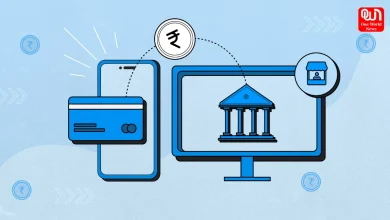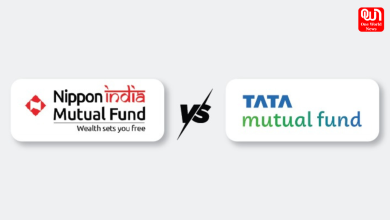Demat Accounts and Tax Benefits: What Investors Need to Know
A Demat account is your gate pass to enter India's burgeoning stock market boom. You will need a demat account to invest in the stocks and other securities offered in the capital market.
Tax Implications For Your Demat Account
)
A Demat account is your gate pass to enter India’s burgeoning stock market boom. You will need a demat account to invest in the stocks and other securities offered in the capital market. A Demat account facilitates the buying and selling of shares.
However, any gains on the stock market are subject to tax deductions. Understanding the tax implications of a demat account is a must for investors. It is better to be informed today than to be sorry tomorrow. In this article, we will explore the tax benefits of a demat account in detail.
Tax Implications For Your Demat Account
Your demat account is undoubtedly your gateway to investment in India’s shares, bonds, mutual funds, and other financial instruments. The returns earned on investments in India’s stock market in recent years have considerably exceeded those earned on traditional financial instruments such as fixed deposits. Who doesn’t crave to walk on the path of India’s legendary stock market investor, Rakesh Jhujhunwala? If you’ve not yet taken the step to open demat account, opening one in India is now easier than ever.
There are plenty of opportunities to cash in on India’s growth story, but it is always better to be aware of the riders that might come along. One such rider is the taxes the Government of India imposes on capital gains.
Here are the tax implications you might face when investing in the stock market.
1. Dividend Distribution Tax (DDT)
The government of India used to impose DDT on businesses that distributed dividends to their shareholders. This tax has been abolished to support the ease of business in India.
2. Securities Transaction Tax (STT)
You are required to pay STT for transactions involving stocks, derivatives, and equity-based mutual funds. This tax, which is a direct tax on both the buyers and sellers of shares, is calculated as a percentage of transaction value. Rates of STT depend on the type of transaction and the type of securities involved in the transaction.
3. Long-Term Capital Gains Tax
A capital asset held for over a year qualifies as a long-term asset. The value appreciation of these assets is referred to as long-term capital gain. As per the Income Tax Act of 1961 provisions, capital gains of up to Rs. 1 lakh per financial year are exempted from LTCG tax. Gains exceeding this limit, however, are taxable at 10%.
4. Capital Loss Tax
Selling the assets held in your demat account at a price lower than its purchase price results in a capital loss. You could incur both short-term and long-term capital loss. The good part is that you are allowed to transfer your loss (for short-term and long-term) for a maximum of eight financial years in future if you do not want to settle the tax liability in the year of incurrence of the loss.
5. Income Tax-Related Implications
Holding your wealth in a dematerialised form does not set you free from the net of the Income Tax department. You are required to mention your capital gains in your annual Income Tax Return (ITR) statement. Gains incurred from other securities are also to be reported. All dematerialised transactions and holdings in the demat account must be mentioned in your ITR.
6. Gift Tax
Transferring securities from your demat account to other beneficiaries is a taxable transaction in India, subject to certain conditions. Transactions within the limit of Rs. 50,000 are exempt from this tax.
After becoming familiar with the tax implications of your demat account transactions, let’s understand the tax benefits that accompany your demat account.
Availing Tax Benefits
Here are some ways to avail tax benefits through your demat account.
1. Investing in Equity Linked Savings Schemes (ELSS)
ELSS is a type of mutual fund. Investments in ELSS funds qualify for a deduction under Section 80C of the Income Tax Act of 1961. You could save up to Rs. 1.5 lakhs per financial year by investing in ELSS funds. ELSS mutual funds are one of India’s most tax-efficient ways to invest in equities.
2. Investing in Tax-Free Bonds
Certain bonds offered by the Government of India are exempt from payment of taxes. That is, the interest income you generate from investing in these bonds is exempt from the payment of taxes. Held in your demat accounts, these bonds are a consistent tax-free income source.
3. Systematic Investment Plans (SIPs)
Investing in mutual funds through the SIP route allows tax exemptions on long-term capital gains under Section 80C of the Income Tax Act 1961.
4. Diversification of Portfolio
Tax implications on your demat account can be optimised by appropriately diversifying your portfolio. You could reduce your overall tax liabilities by spreading your gains and losses. It is financially prudent to allocate your funds across diverse assets covering equity and debt asset classes.
5. Professional Advice
Tax laws evolve with time. It can be difficult for a layperson to comprehend these revisions. Moreover, keeping a tab on all the revisions can be difficult. In short, it is only possible to do with the professional services of a tax advisor or a stock market expert. Consult them for advice and expertise that aligns with your financial goals. This investment can significantly amplify your savings.
Conclusion
Having a demat account allows you to hold and trade marketable securities. In this article, we’ve seen how you could enhance your savings with your demat account. Irrespective of the validity of the tax benefits associated with the schemes here, it would be prudent to keep yourself updated on the amendments to taxation rules made by the government of India. Who knows, you could save even more with a tweak or two.
We’re now on WhatsApp. Click to join
Like this post?
Register at One World News to never miss out on videos, celeb interviews, and best reads.








